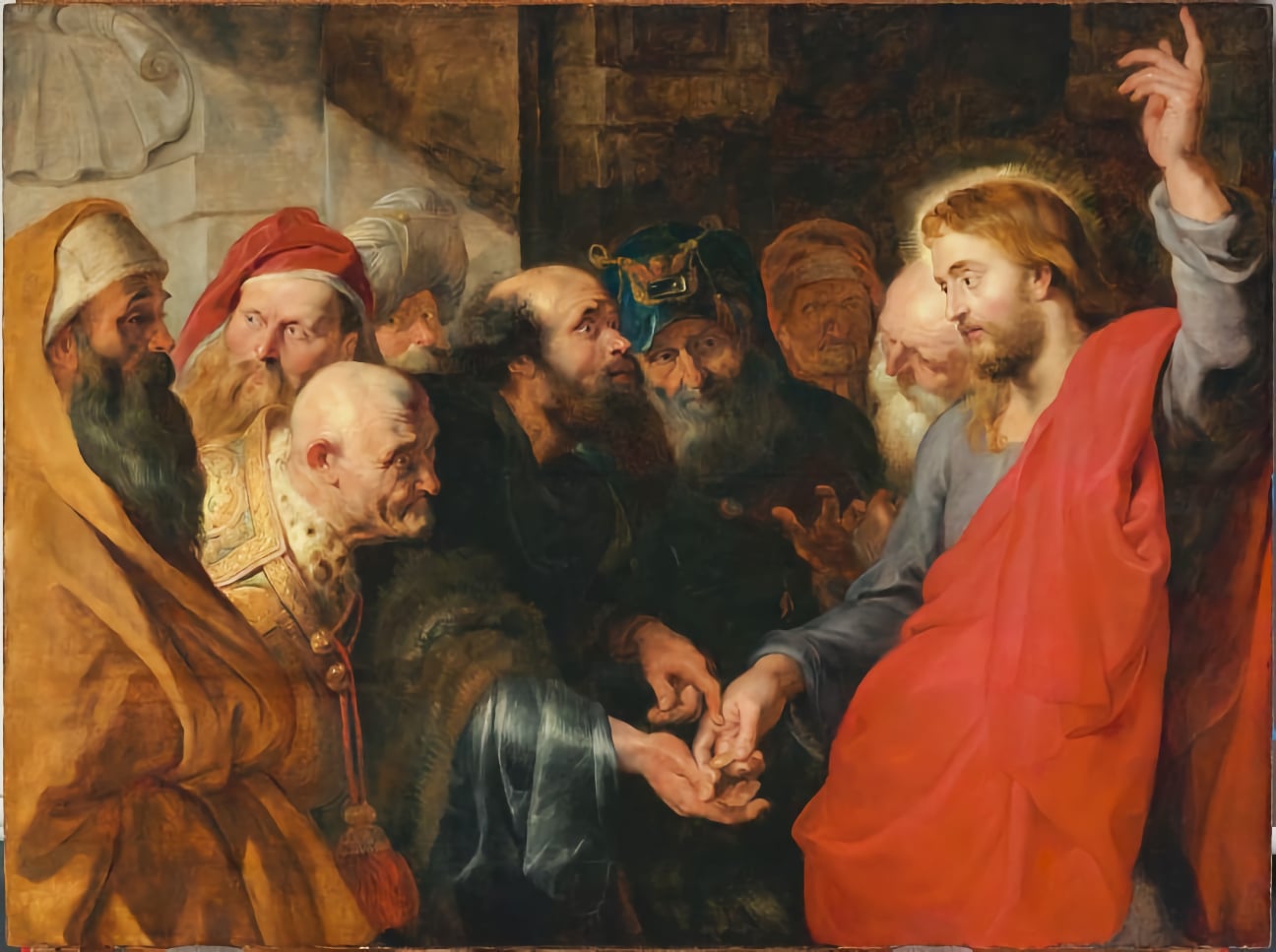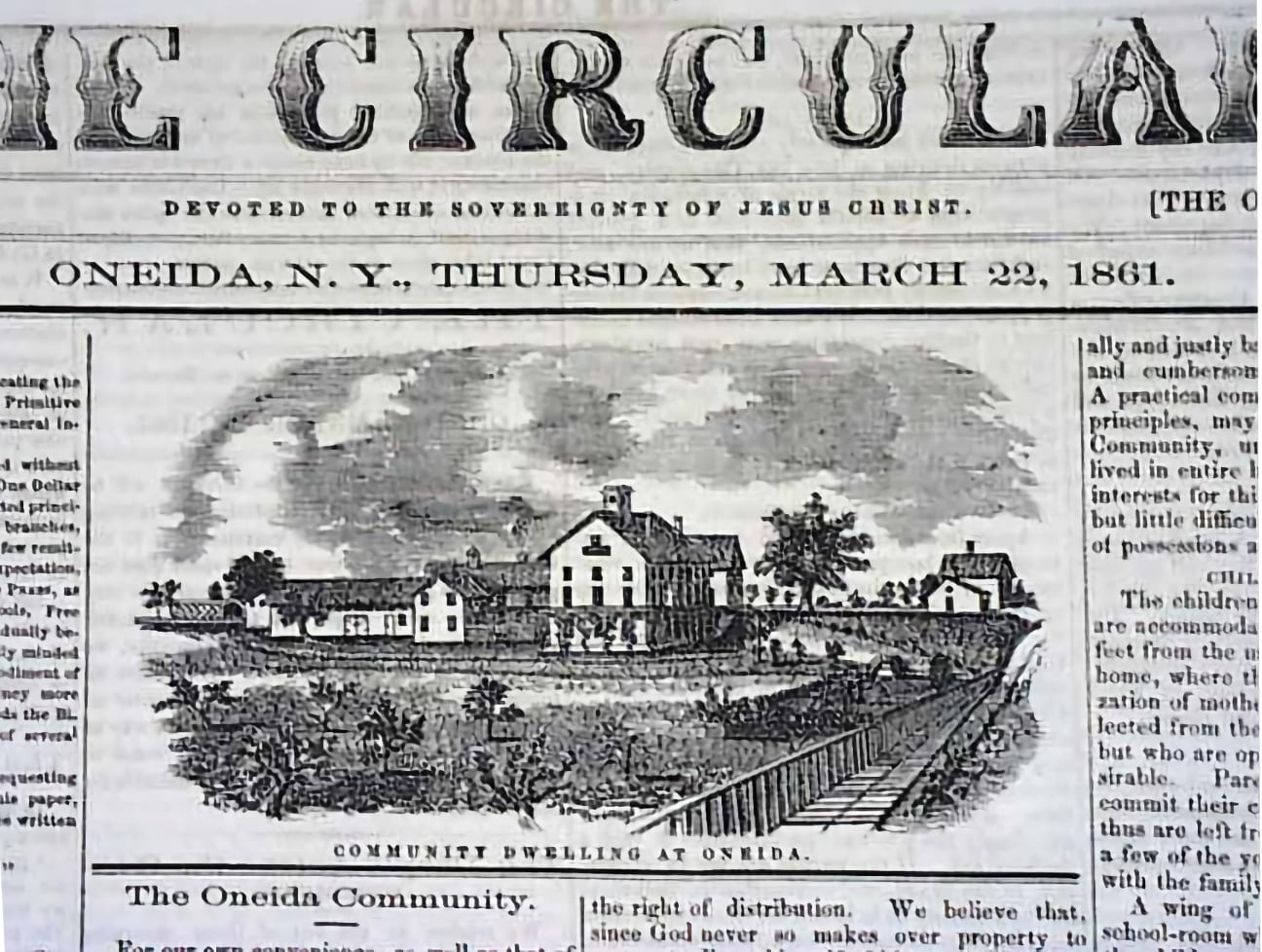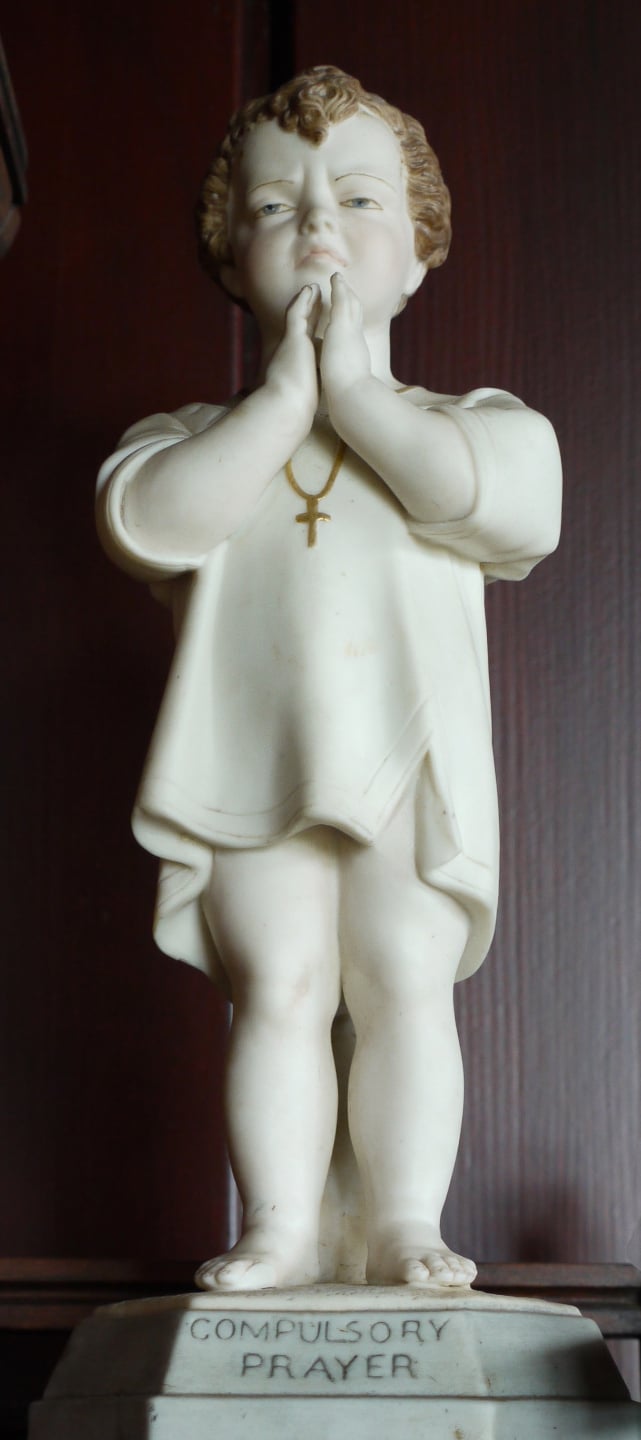
Render Unto Caesar by Deborah Beach Giordano
Don't Fight the System?
“Give to Caesar the things that are Caesar's, and to God the things that are God's.”
The sun was shining, the birds were singing, the scent of lavender filled the air, and the weekend beckoned enticingly as I strolled out to collect the mail. All was well in the world as I extracted a small pile of advertisements, catalogs, a couple of bills…. but suddenly, my blood rain cold. An evil missive had been hidden beneath the other envelopes like a rattlesnake under a rock: “Jury Summons” it hissed.

OK, so maybe that's a slight exaggeration — but not by much. I did let out a yelp of dismay upon seeing the Jury Duty summons. My inner 3-year-old shouted, “I don't wanna go!!” But, if I don't show up on the appointed day and hour, the notice informs (that is, threatens) that I may be “held in Contempt of Court and be subject to a fine and a jail term.”
I guess that makes this a “render unto Caesar” moment. Surrender to the government what the government lays claim to. As one who has the right to a trial by a jury of one's peers, I have the responsibility to serve on a jury for a fellow citizen. So the argument goes. Also, they'll apparently arrest me and throw me in jail if I don't show up. In truth, that last part is a much stronger motivator than any commitment to my civic duty.
But it's not quite that simple. In this case the answer may seem straightforward, but there are hundreds — perhaps thousands — of concerns and objections that can affect our decisions. This is a serious issue. How do we discern what Jesus meant by those words, and how do they apply to Christians today?
Giving Caesar his Due
 Clearly, those around Jesus considered the statement noteworthy. Both Mark and Matthew describe this encounter and report that those who questioned him marveled/were in awe of Jesus. Evading the snare his enemies had set, Jesus does not speak against Caesar's authority to assess taxes, instead he seems to give Rome its due: a worldly government run in accordance with worldly values. That's their sphere and we live within it, so they call the shots.
Clearly, those around Jesus considered the statement noteworthy. Both Mark and Matthew describe this encounter and report that those who questioned him marveled/were in awe of Jesus. Evading the snare his enemies had set, Jesus does not speak against Caesar's authority to assess taxes, instead he seems to give Rome its due: a worldly government run in accordance with worldly values. That's their sphere and we live within it, so they call the shots.
But there's more to the Lord's teaching — although we often overlook the other half: “Give to the government the things that are the government's, and give to God the things that are God's.”
It's important that we don't confuse the two: there is the earthly power and there is the Everlasting Power. Jesus reminds us that, in the midst of living in this world, paying taxes and coping with government demands, we must remain mindful of what ultimately matters.
We cannot ignore the reality of government power, nor refuse what it reasonably may lay claim to. Until the Kingdom comes — or we get to heaven — we have to deal with their authority, their version of this world, and live within it as best we can. Render unto Caesar.
Yet we know that there is a better way. What if we create a heavenly kingdom here on earth? Isn't that the Gospel message: reform, renew, replace?
A Perfect Society
Repeatedly over the years individuals and communities have tried to escape the power and control of Caesar: hermits and hippies, misanthropes and monastics, Mayflower pilgrims and Oneida Christians — all seeking to follow their own way, free from interference and restraint. It has been tried.
 Yet without the necessary evil (?) of organization, freedom becomes a free-for-all and slides into confusion and chaos, and people get hurt, exploited, aggressive, and resentful. The dream becomes a nightmare. Utopian communities either reform and restructure, or dissolve and disappear — occasionally, as in the notorious case of Jonestown, the end is violent and terrible.
Yet without the necessary evil (?) of organization, freedom becomes a free-for-all and slides into confusion and chaos, and people get hurt, exploited, aggressive, and resentful. The dream becomes a nightmare. Utopian communities either reform and restructure, or dissolve and disappear — occasionally, as in the notorious case of Jonestown, the end is violent and terrible.
The idea of a utopia where perfection reigns is not unique to the religious. Throughout the history of the world secular leaders have promised ease and plenty and all good things, and enjoyed them…. while their citizens lived — and died — in poverty, hunger, and abject misery. “Sacrifices must be made” in the pursuit of the ideal — but sacrifices are never made by those in charge. The glorious revolutions are never glorious for the people.
Garden Pests

In short: There's a snake in every Garden of Eden. Corruption lurks in the hearts of all humanity. The Scriptures don't sugar-coat the reality of our foibles and failings and temptations to wickedness: we are all Adam and Eve. Yet despite the deceit and spurning of God, all is not lost. Though exiled from the Garden, the gift of new life is given, as Eve gives birth first to Cain, and then to Abel. But then envy raises its evil head and strikes as Cain chooses to destroy the life of his younger brother.
Power corrupts, and greater power attracts greater trouble. Some in positions of power begin with a genuine desire to help and guide, but many, perhaps most, fall into uncontrolled egotism — the distorted self-satisfaction traditionally called “hubris” (not be be confused with the healthy self-respect and self-assurance of pride). It is self-idolatry, the elevation of self to divine status: infallible, above reproach, unwilling to yield or change. It leads to tyranny, to oppression, to disaster.
We need not look far to see evidence of the damage that power can inflict on souls and on society: the petty tyrants glorying in their authority in business, government, public agencies, private enterprise, unions, corporate boards, church committees, homeowners associations.… We've all encountered them; we may even have been a part of them on occasion! No group or organization is immune.
We must always be watchful and wary of any overarching authority. Including our own.
A Line in the Sand?
The first Christians, no less than we, were surrounded by earthly authority: courts and committees, markets and money, signage and statues and soldiers and centurions, all supporting Caesar — nearly-irresistible pressures to conform, to agree, to obey. Everybody else does it, so what's the problem with you? It's accepted, acceptable, normal. Refusal will be costly.
 Where do we draw the line between government and God? Between society and spirituality? How far does worldly authority reach, and when does it infringe on what is God's? And what are we to do when a conflict arises between the two?
Where do we draw the line between government and God? Between society and spirituality? How far does worldly authority reach, and when does it infringe on what is God's? And what are we to do when a conflict arises between the two?
Standing for Christ

It isn't always as simple as “Give the government what it wants.” But neither is every issue a “Here I stand” moment which requires that we vociferously proclaim our unwavering opposition to the conduct or policies of the worldly Powers and Principalities. We must be mindful of our ultimate purpose, and the effects of what we say and how we say it.
When we speak, it must be in a way that reveals the Gospel: a voice of loving concern emphasizing compassion, healing, hope, and peace. Conversation, a listening heart, and genuine care for others opens the Path between us and the Eternal.
To insist on our own way, requiring that everyone observe our traditions and follow our teachings is to fall headlong into the vice of Power-Over, contrary to Christ's Message, which is to be called to love and life — not coerced.
Compulsory Cooperation
Compulsory “cooperation” breeds resentment, anger, scorn, and distrust. This is obvious in the case of Jury Duty — of which the only saving grace is the instant Fellowship of the Conscripted that springs up among the jury pool. We are immediately a community, joined together in our misery and in our opposition to the system. Many and creative are the plots and ploys for avoiding selection to a jury. No one wants to participate, everybody hates it.
 There's a delightful vintage figurine of a scowling toddler that superbly captures the spirit of forced “cooperation:” it is entitled Compulsory Prayer. The little fellow looks as if he's been given a spoonful of pickle juice: the process has left a bad taste in his mouth — which is precisely our reaction to mandated conformance of any sort: we hate it on general principles; we are resentful, suspicious that it cannot stand on its own merits, and resistant to any special pleadings: “It's good for you.”
There's a delightful vintage figurine of a scowling toddler that superbly captures the spirit of forced “cooperation:” it is entitled Compulsory Prayer. The little fellow looks as if he's been given a spoonful of pickle juice: the process has left a bad taste in his mouth — which is precisely our reaction to mandated conformance of any sort: we hate it on general principles; we are resentful, suspicious that it cannot stand on its own merits, and resistant to any special pleadings: “It's good for you.”
No one is convinced under duress. All of the Lord's disciples came to Him willingly, and followed His Way voluntarily. Christ's message was such a clear and sweet alternative to the civil religion of Rome that many were persuaded.
Whenever Christians (or any group) have sought to compel conversions, or to mandate conformance, or enforce a particular viewpoint or version of our faith, it always ends badly. The seductive poison of power-over emboldens every sort of wickedness and cruelty — which is then justified as “for the greater good.” We must not repeat that mistake.
The Good News
The Good News is exactly that: a joyful announcement of another Way to live: an alternative to slogging along the grimy Road of misery and despair. Christ's gospel offers freedom from the soul destroying, death-dealing social pathways of violence, antagonism, hostility and hatred. Given the choice — who would turn away?
That said, following the Lord is not a walk in the park.

And we must not confuse the two.
Giving to God
People of good heart will disagree. That can seem sad, a sort of proof of how far we are from the heavenly Kingdom, evidence of how much work needs to be done. And yet, differing viewpoints and concerns expand our understanding and our compassion (thus giving to God what is God's: our hearts and minds). And yes, it would be great if every decision we make and all the positions we take were absolutely spot-on, 100% correct and good, but watch out! Coiled just beneath the surface of certainty is stubbornness, hard-heartedness, hubris — the ever-lurking serpent tempting us to claim divine wisdom: omniscient, inerrant, unchanging.
 Give to God what is God's: the ultimate choice, the final decisions are the property of the Ineffable Eternal; the rest of us are fallible. The Scriptures are filled with stories of human failings and foul ups. As Jesus warned his listeners: “Only God is [perfectly] good.” Don't let a healthy desire for sanctity turn into sanctimoniousness — that path is the direct opposite of Christ's Way.
Give to God what is God's: the ultimate choice, the final decisions are the property of the Ineffable Eternal; the rest of us are fallible. The Scriptures are filled with stories of human failings and foul ups. As Jesus warned his listeners: “Only God is [perfectly] good.” Don't let a healthy desire for sanctity turn into sanctimoniousness — that path is the direct opposite of Christ's Way.
People of good heart can be mistaken or misled — it's happened before. A lot. Our task is to listen, to pray, to read the Scriptures, to reflect, and then to go forward, Gospel-minded, Christ-hearted: blessing, healing, consoling, and lifting up; offering a Way apart from what harms and demeans and cuts down.
Our character and our conduct as Christians, these we give to God.
The peace of the Lord — and His strength be with you,
Deborah ✝
Suggested Spiritual Exercise
Reflect and pray:
Give to Caesar the things that are Caesar's, and to God the things that are God's.